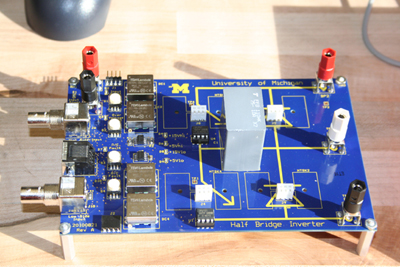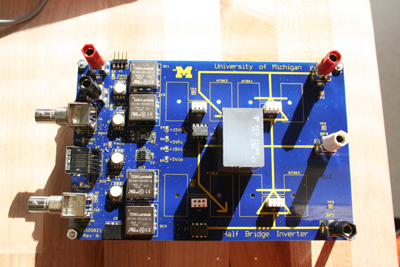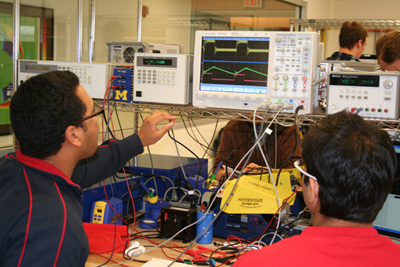EECS 418: Power Electronics
Instructors: Professor Heath Hofmann and Professor Al-Thaddeus Avestruz
Coverage
Power electronics is the study of the use of electronics in energy conversion, with power levels from the microwatt level to thousands of megawatts. The goal of this course is to cover the following topics, so that the person finishing this course would have the knowledge base necessary to design working power electronic systems:
Topics
- AC-DC Conversion
- DC-DC Conversion
- Isolated DC-DC Conversion
- Power Semiconductor Devices
- Power Electronic Components
- Capacitors
- Inductor, Transformer Design
- Control of Power Electronic Circuits
- Auxiliary Circuitry
- Gate and Base Drive Circuits
- “Snubber” Circuits
- Thermal Analysis
Lab
The labs will provide the students with hands-on experience with power electronic circuit topologies (including AC-DC, DC-DC, and isolated DC-DC), components, and control algorithms.
Lab 1 – Introduction and Safety Practices
Lab 2 – Single-Phase AC/DC Converters
Lab 3 – Three-Phase AC/DC Converters
Lab 4 – Silicon-Controlled Rectifier Circuits
Lab 5 – DC/DC Converters
Lab 6 – Isolated DC/DC Converters
Lab 7 – Power Semiconductor Devices
Lab Project – Control Design for Power Electronic Circuits
Textbook(s)
Mohan, Undeland, and Robbins. Power Electronics, 3rd edition. John Wiley & Sons, Inc. New York, 2003.



 MENU
MENU 
